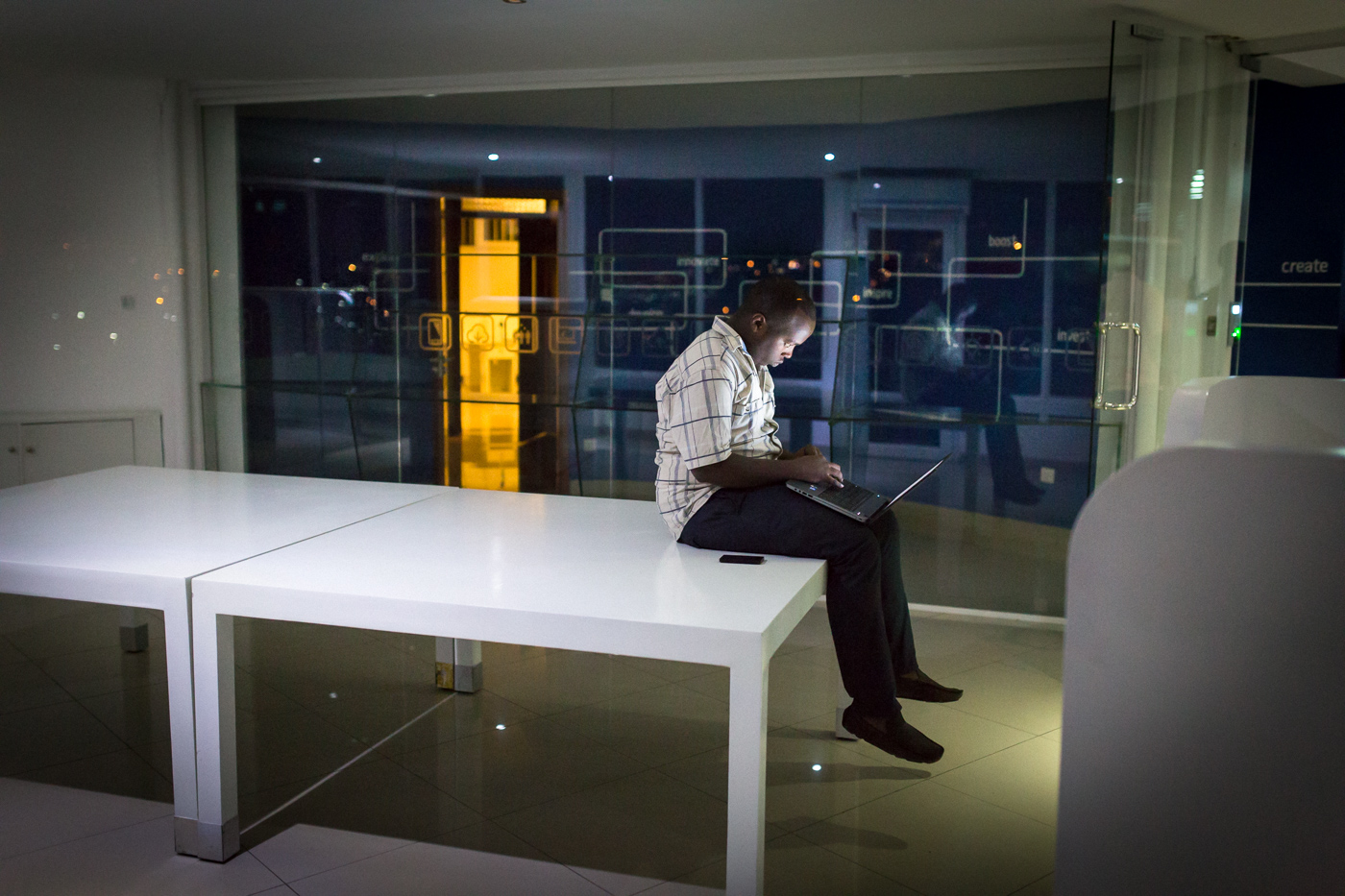When Jean Niyotwagira was 14, he and his brother taught themselves to code on a used, MS-DOS computer their father purchased at a thrift store. At the time, the boys were watching a lot of science fiction television; the new computer captured their imaginations. With the help of a few books, but mostly through trial and error, Niyotwagira was soon using the computer to draw circles and different shapes.
That was in 2001; seven years earlier, the family had been running for their lives. Niyotwagira was 6 when the 1994 genocide broke out. In 100 days, nearly a million people were systematically killed and many more were displaced. He remembers the time all too clearly; he lost many family members and didn't return to school for two years, as the country grappled with the horror it had suffered.
The U.S. and other Western countries poured billions of dollars into the country once the genocide ended, guilt-ridden for not having prevented the slaughter. International aid still makes up nearly half of the national budget. In the 21 years since the horrors of 1994, however, Rwanda has come shockingly far. Despite a near total lack of natural resources, the GDP grew at an annual rate of 8 percent over the last decade, making it one of the fastest growing economies in the world. Poverty and inequality have dropped precipitously as well, and some are even boldly dubbing the country "the Switzerland of Africa."
One key to this turnaround is technology. It seems that President Paul Kagame — the longtime leader of Rwanda, who is also known as the "digital president" — has positioned the country for an extraordinary leapfrog from an agrarian to a knowledge-based, service-oriented economy. "We want technology to sort of permeate all the professions, all the jobs," says Jean Philbert Nsengimana, Rwanda's Minister of Youth and Information Technology.
This attitude creates a climate where techies like Niyotwagira can thrive. His immense passion for computers only continued to build throughout his teenage years. In 2011, he graduated from university with a degree in computer science. Working for a big corporation wasn't for him, he says and he'd known all along his future was one that lay off the beaten path. One day, after graduating, he and a friend were spitballing business ideas. If they could create software to help distribute beer – their thinking went – maybe they could make a small percentage of all beer sales, countrywide.
After partnering with Heineken—the third largest brewing company in the world—26-year-old Niyotwagira is now CEO of TorQue. Located in the Rwandan capital of Kigali, they design software to help businesses operate more efficiently. TorQue is growing fast and has become something of a poster child for Rwandan entrepreneurialism. The company has won awards and Niyotwagira has traveled abroad for competitions and conferences. He's sat on panels with President Kagame.
"I find myself in this position where so many opportunities keep opening up here and there for me and all of this is this enabling environment, which is Rwanda," Niyotwagira says.
The future looks incredibly promising. He says he doesn't want Torque to be just a Rwandan company, it has to be a global company.
"We not limited by the fact that our country has a tragic history," he says. "It's actually something to push us further, knowing we need to build strong foundations that cannot be destroyed again."
There are many young Rwandans like Niyotwagira, whose entrepreneurial spirit is palpable and who are driven to continue moving beyond the nation's scars. But their coming of age could very well be double edged. More than half of Rwandans were born after the 1994 genocide, and the population is expected to double in the next 20 years. If not already, those young people will soon need jobs and it is yet to be seen whether the economy, still dependent on foreign aid, can bear the burden. Moreover, only about 20 percent of homes in the country have electricity and many Rwandans still live on less than $2 a day; clear hindrances to fully transition into a technology driven future.
But, ready or not, Rwanda is getting ready to hand the reins to the younger generation like Niyotwagira's. The hope is that they will continue to be a model in the East African Rift.













